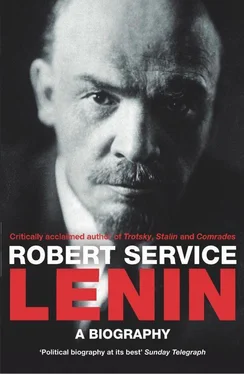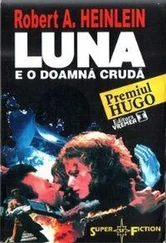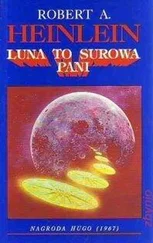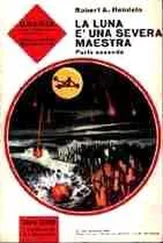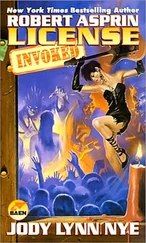The family could only make guesses as to why he banged his head, and reached the conclusion that it had something to do with his physical shape. Volodya as a baby had short, weak legs and a large head. He kept falling over, apparently because he was top heavy. Once he had fallen over, they believed, he flailed around to pull himself up and banged his head in sheer frustration. 3
This did not explain why he continued to be so noisy even when he had learned to walk. He never stopped making a racket and according to Anna, he was boisterous and demanding throughout his childhood. 4He was much more destructive than the other Ulyanov children. When his parents gave him a small papier-mâché horse for his birthday, his instinct was to creep off with the toy and twist off its legs. Anna watched him as he hid himself behind a door. A few minutes later he was found, perfectly content, with the horse in pieces at his side. What is more, Volodya was not always pleasant to his brothers and sisters. At the age of three, he stamped over the collection of theatre posters which his elder brother Sasha had carefully laid out on the carpet. He ruined several of them before his mother could haul him away. A couple of years later he grabbed Anna’s favourite ruler and snapped it in two. 5By then he was old enough to understand that he had done something seriously wrong in this orderly family. There was a malicious aspect to his behaviour and the rest of the family did not like it.
But he also had much charm and was always forgiven by his nanny Varvara Sarbatova. When he misbehaved, he owned up quickly. This at least reassured his mother to some extent: ‘It’s good that he never does anything on the sly.’ 6At the age of eight he proved her point. It was then that he was allowed for the first time to travel by paddle steamer to Kazan to visit his Aunt Anna Veretennikova ( née Blank) in the company of his sister Anna and brother Alexander. This was a big occasion for him and he had difficulty restraining his tears as he waved his mother goodbye on the Simbirsk quayside. In Kazan he had a rare old time with his Veretennikov cousins and got up to some horseplay. Unfortunately he smashed a glass vase in the process. Aunt Anna heard the commotion, rushed into the room and quizzed everyone about the incident. Volodya, however, kept quiet and did not admit to what he had done. Three months after the event, when he had returned to Simbirsk, his mother found him sobbing into his pillow late at night. When she went upstairs to his bedroom, he blurted out to her: ‘I deceived Aunt Anya [Anna’s diminutive]. I said that it wasn’t me who broke the vase whereas it was me who broke it.’ 7
Volodya was a stocky boy of moderate height with curly light-brown hair which turned ginger in adolescence. He still had shortish legs and a disproportionately large head. Although he was generally in good health, there was concern about the squint in his left eye. His mother took him to Kazan to be examined by the ophthalmologist Professor Adamyuk, who advised that the defect was irremediable and that he would have to manage exclusively with his right eye. 8Very late in his life, in 1922, Lenin learned he had been misdiagnosed. In fact the left eye was merely short-sighted, 9and Adamyuk’s failure to issue him with spectacles resulted in his habit – much noted when he became a famous politician – of screwing up his eyes when talking to people. His brothers and sister suffered from much greater problems. When Sasha became acutely ill with a stomach inflammation, Maria Alexandrovna fell to her knees before the icon in the sitting-room corner and called over to her daughter Anna: ‘Pray for Sasha.’ 10Sasha recovered from his illness, but other Ulyanovs, including Volodya, suffered with their stomachs. There seems to have been a genetic predisposition in the family, possibly one that was inherited from the Blank side.
Yet for most of the time they were fit, active and full of purpose. The children were encouraged to take plenty of exercise. Their father Ilya Nikolaevich went on walks with them along the headland by the river Volga to the north of the town. He also bought season tickets for the family to bathe at one of the nearby beaches. 11But mainly the children were left to their own devices outside the home. A gap of fourteen years separated the eldest and the youngest of them – Anna and Maria. This meant that the smallest children almost treated the others as adults. But Volodya was different. Sometimes he and the younger children were left in the care of Sasha and Anna, who obeyed and applied the rules set by their parents. Volodya loved and admired Sasha, but still he would avail himself of the opportunity to play up. On occasion he ran into the hall in his muddy galoshes. Floor and carpet were dirtied and Anna and Sasha were horrified. Such antics marked him off from his brothers and sisters. 12
The children paired off for companionship. Sasha and Anna, the two eldest, got together; then came the boisterous couple, Volodya and Olga; and the third pairing was of Dmitri and Maria. The closeness of Sasha and Anna endured beyond adolescence; they still saw a lot of each other when they became students in St Petersburg. Volodya and Olga were also contented playmates; nobody could remember them ever falling out. Their harmony probably resulted, at least in part, from the fact that Olga, who had a sweet nature, did as Volodya told her, and as their elder sister Anna recalled, ‘he liked to give commands [ komandovat’ ].’ 13Volodya and Olga raced about the large garden and played on the trapeze that Ilya Nikolaevich had bought after the family had watched a travelling circus in Simbirsk. On quieter days, Volodya and Olga might get out the croquet set. But always there was some palaver. Their mother’s friend Gertruda Nazareva was to write: ‘The whole day long you could hear Olga singing, hopping, spinning round or playing with Volodya, who I think caused greater bother than any of the others to his mother and elder sister.’ 14
Again he was hardly a delinquent, just the most mischievous child in a remarkably orderly family. Punishment was rarely thought necessary. Ilya Nikolaevich had a fiery temperament and his sons and daughters feared his disapproval even when his job took him off on lengthy trips around the province of Simbirsk. At such times Maria Alexandrovna punished any misbehaving child by sending them to sit on the chair in Ilya Nikolaevich’s study. This was known in the family as ‘the black chair’. The family never forgot an episode when Volodya, after a piece of naughtiness, was dispatched to the chair and his mother forgot all about him for hours. Mischievous though he was, he did not dare get down or make a sound until she returned to the study. 15
And so life went on. Their growing number of children impelled the Ulyanov parents to look for a larger house, and in summer 1878, on Ilya’s appointment as Provincial Director of Popular Schools, they moved to 48 Moscow Street. This was the place Volodya was to remember as his Simbirsk home. Moscow Street was near the heart of the town and was one of the larger, more prestigious streets since it contained the official residence of the Simbirsk army garrison commander. (Even so, it was not supplied with a pavement and pedestrians had to walk along wooden duckboards if they wished to avoid the mud and puddles in wet weather.) The Orthodox Cathedral, the Simbirsk Classical Gimnazia and the Karamzin Public Library all lay within a short distance. The location was convenient for the entire family, including Maria Alexandrovna, who could visit the Lutheran Church a few houses away. But the main attraction for the Ulyanovs was the house itself. Ilya had a capacious study on the ground floor; Maria, too, had her own room. Downstairs there were five large rooms and a kitchen and plenty of space existed in the children’s bedrooms on the first floor. The garden was substantial; large trees graced the lawn and the family employed a gardener to produce the fruit and vegetables they needed. Like all middle-class professional families, the Ulyanovs had servants.
Читать дальше
